- About Ramapo
- Academics
- Admissions & Aid
- Student Life
- Athletics
- Alumni
- Arts & Community
- Quick Links
- Apply
- Visit
- Give
Ramapo’s Global Talks
A virtual series to discuss global topics, including literature, arts, social issues, current affairs, academic topics, and much more. Presenters are members of Ramapo College and our global network of partners. Open to students, staff, faculty, administration, community members, the public – EVERYONE!
Schedules
Spring 2022 Calendar of Global Talks
SPRING 2022
Stay tuned for an expanded Global Talks series in Spring 2022, including additional topics, themes, speakers and events! Those that are confirmed are listed below:
February 2022
Feb. 16
11:00 am - 11:45 am (EDT)Program Description: African universities are currently grappling with finding transformative pathways that make them relevant, useful and productive. In this effort, incorporating and integrating indigenous knowledge systems has not been sufficiently explored. African knowledge systems have not been systematically studied. Neither is their value and relevance to current African society examined. This talk presents the nature and problems associated with studying African knowledge systems. In particular, it tackles the broader Africana issue by way of examining the case of the merits, features and stages of the Ethiopian traditional education system. The benefits lost when modern, i.e., Western style education was solely adopted in Ethiopia, disregarding the traditional education system, is discussed. This brief talk recommends that systematically studying African knowledge systems is important for African universities to forge their identity, and to appreciate the continent’s needs and the direction of its social, economic, political, and personal development.
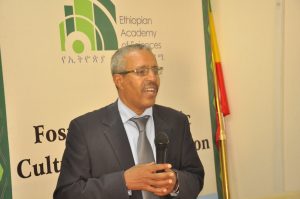
Masresha Fetene is an Emeritus Professor of Plant Ecophysiology, at Addis Ababa University. Heis currently a Fulbright Visiting Scholar at Boston University, African Studies Center.
Co-Sponsored by: the Fulbright Outreach Lecturing Fund, Ramapo International, Ramapo’s School of Social Sciences & Human Services, Ramapo’s Multicultural Center and Boston University.
More details: https://www.ramapo.edu/international/fulbright/olf/
March 2022
Mar. 30
10:00 am - 11:00 am (EDT)“India Today” will be an introductory talk on contemporary Indian society, politics, the work of NGOs (non-governmental organizations), and the various themes of gender, climate/environment, religion, media, and education. Hear from a renowned expert in India for this virtual and in-person event.
Presenters:
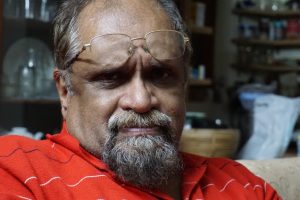 Siddhartha is the founder of Pipal Tree, an organisation concerned with media, inter-culturality, and environment issues, and Fireflies Intercultural Centre, an international eco-spiritual centre in Bangalore. He coordinates Meeting Rivers, an e-bulletin which engages religion and spirituality from a social and ecological perspective. He has lectured widely in Dublin, University of Massachusetts, Ramapo College (New Jersey), the United Nations University in Tokyo and organized international conferences and workshops in Manila, Bangkok, Seoul, Paris, Melbourne, Kathmandu and Bangalore on issues related to culture, ecology and sustainable development.
Siddhartha is the founder of Pipal Tree, an organisation concerned with media, inter-culturality, and environment issues, and Fireflies Intercultural Centre, an international eco-spiritual centre in Bangalore. He coordinates Meeting Rivers, an e-bulletin which engages religion and spirituality from a social and ecological perspective. He has lectured widely in Dublin, University of Massachusetts, Ramapo College (New Jersey), the United Nations University in Tokyo and organized international conferences and workshops in Manila, Bangkok, Seoul, Paris, Melbourne, Kathmandu and Bangalore on issues related to culture, ecology and sustainable development.
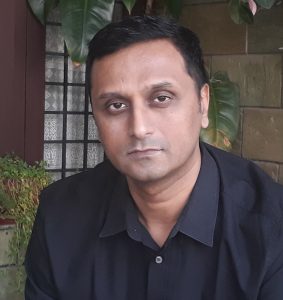 Chandan Gowda is Ramakrishna Hegde Chair Professor of Decentralization and Development at the Institute for Social and Economic Change, Bengaluru. His areas of research include Indian political thought and modern Kannada literature and cinema. Besides academic publications, he has translated Kannada fiction and non-fiction into English. He has compiled and edited The Way I See It: A Gauri Lankesh Reader and A Life in the World, a book of autobiographical interviews he did with UR Ananthamurthy. At present, he is completing a book on the cultural politics of development in the old Mysore and co-translating and editing Daredevil Mustafa, a book of short stories by the Kannada writer, Purnachandra Tejasvi. He is also a columnist with Deccan Herald.
Chandan Gowda is Ramakrishna Hegde Chair Professor of Decentralization and Development at the Institute for Social and Economic Change, Bengaluru. His areas of research include Indian political thought and modern Kannada literature and cinema. Besides academic publications, he has translated Kannada fiction and non-fiction into English. He has compiled and edited The Way I See It: A Gauri Lankesh Reader and A Life in the World, a book of autobiographical interviews he did with UR Ananthamurthy. At present, he is completing a book on the cultural politics of development in the old Mysore and co-translating and editing Daredevil Mustafa, a book of short stories by the Kannada writer, Purnachandra Tejasvi. He is also a columnist with Deccan Herald.
Moderator:
Sanghamitra Padhy, Associate Professor of Law & Society, Ramapo College of New Jersey (Profile)
WebEx: https://ramapo.webex.com/ramapo/j.php?MTID=mca13973af95e11d3e27d034360d3c945 (Pre-registration required)
April 2022
Apr. 20
10:00 am - 11:00 am (EDT)Hear perspectives and engage with climate change scholar-practitioner from India. Discuss the current issues and how they are addressing this in all scales from local community to international policy.
WebEx Link: https://ramapo.webex.com/ramapo/j.php?MTID=mbb8a54562cac92f445cfa744dd848904 (Pre-registration required)
Speaker Bio:
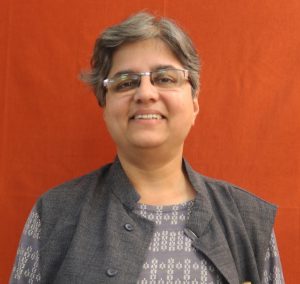 Dr. Priyadarshini Karve completed Ph.D. in Physics from University of Pune, in 1998. Her first research project resulted in the development of a process for converting agricultural waste into charcoal. The technology won the Ashden Award for Renewable Energy in 2002.
Dr. Priyadarshini Karve completed Ph.D. in Physics from University of Pune, in 1998. Her first research project resulted in the development of a process for converting agricultural waste into charcoal. The technology won the Ashden Award for Renewable Energy in 2002.
In a career spanning more than 20 years, Dr. Karve invented a number of improved biomass burning cooking devices, to reduce smoke in the kitchen and dependence on firewood for domestic cooking in rural areas. She has also worked on “decentralised organic waste to fuel” technologies. She developed a methodology for technology selection and promotion to improve adoption of clean cooking energy devices by end users. In the past 5 years or so, her work has also focused on devising and promoting strategies for low carbon, sustainable urbanisation.
She has published more than 30 research papers in peer reviewed journals, and has contributed to technical books. In 2005, she started Samuchit Enviro Tech, a social enterprise that promotes environmentally sustainable energy and lifestyle products. Dr. Karve, who is the Managing Director of Samuchit, has also invented an easy-to-use Samuchit Carbon Footprint Calculator for Urban Indians, and conducts workshops on climate friendly lifestyle, sustainable urbanisation, etc. She is also a Founder Director of OrjaBox LLP, a green start-up, from 2021.
Dr. Karve is actively involved in national and international organisations working in the field of renewable energy, equitable sustainable development, climate resilience, etc. Over the years she has successfully led numerous short term funded projects based on scientific and technological research, technology dissemination and commercialisation, third party assessments, and policy advocacy. She is a Founder Member and a Member of the Board of Directors of Clean Energy Access Network (CLEAN), a registered society in India, and serves on the Governing and Advisory Bodies of a number of other national and international organisations. She is also the National Convener of Indian Network on Ethics and Climate Change (INECC). She teaches courses on Sustainability, Physics, and Big History (History of the Universe) at Symbiosis International University. In addition, she is co-editor of ‘Shaikshanik Sandarbh’ a Marathi language bi-monthly on Science and Education, and a member of the Board of Editors for ‘Confluence: Journal of Interdisciplinary Studies’.
Her work has been honoured by several national and international awards, including World Technology Award in Environment Category 2005 (by World Technology Network, New York), Sahyadri Hirakani Award 2011 (by Mumbai Doordarshan Television Channel, India), Vasundhara Award 2014 (by Kirloskar Vasundhara International Environmental Film Festival), “Unch Maza Zoka” Award 2015 in Environment Category (by Zee TV Marathi Television Channel, India), etc. She is a TEDx speaker and has also been featured in a number of national and international periodicals, publications, radio and television programmes, and podcasts.
Fall 2021 Calendar of Global Talks
FALL 2021
November 2021
Nov. 19
12:00 pm - 01:00 pm (EDT)Brief Description(s) of the Talk(s):
How could the experiences of post-communist transitional justice inform current controversies in the United States regarding its reckoning with the past? We will briefly explore in this talk different facets of American exceptionalism that have preempted any substantive reparations for the crimes against humanity perpetrated against enslaved Africans and their descendants, followed by a discussion of the 1989 revolutions in East and Central Europe that overthrew communism, yet failed to promote an inclusive and pluralistic model of the past. Instead, current representations of the past rooted in essentialist and ethnocentric historical narratives are weaponized by non-democratic political actors. Finally, we caution against misguided representations of historical trauma and memory wars in the US that could potentially reproduce white supremacist ideologies and escalate existent political and cultural divisions.
Brief Bio of the Presenters:
 Monica Ciobanu holds a PhD in sociology from the Graduate Faculty of the New School for Social Research and is Professor of Criminal Justice at Plattsburgh State University of New York. Dr. Ciobanu has published about democratization, memory, truth, and justice in post-communism and especially in Romania. Her book Repression, Resistance and Collaboration is Stalinist Romania 1944-1964: Post-Communist Remembering was published in October 2020 by Routledge Press. She has also co-edited (with Mihaela Şerban) a special issue on Law, History and Justice published by the Journal of Romanian Studies (October 2020).
Monica Ciobanu holds a PhD in sociology from the Graduate Faculty of the New School for Social Research and is Professor of Criminal Justice at Plattsburgh State University of New York. Dr. Ciobanu has published about democratization, memory, truth, and justice in post-communism and especially in Romania. Her book Repression, Resistance and Collaboration is Stalinist Romania 1944-1964: Post-Communist Remembering was published in October 2020 by Routledge Press. She has also co-edited (with Mihaela Şerban) a special issue on Law, History and Justice published by the Journal of Romanian Studies (October 2020).
Profile Link: https://www.plattsburgh.edu/academics/schools/arts-sciences/criminal-justice/faculty/ciobanu-monica.html
 Mihaela Şerban is Professor of Law and Society at Ramapo College of New Jersey. Her teaching and publications are in the areas of law and society, human rights, the rule of law, and Romanian Studies. Her book Subverting Communism in Romania: Law and Private Property: 1945-1965 was published in July 2019 by Lexington Books/ Rowman and Littlefield. She has also co-edited (with Monica Ciobanu) a special issue on Law, History and Justice published by the Journal of Romanian Studies (October 2020).
Mihaela Şerban is Professor of Law and Society at Ramapo College of New Jersey. Her teaching and publications are in the areas of law and society, human rights, the rule of law, and Romanian Studies. Her book Subverting Communism in Romania: Law and Private Property: 1945-1965 was published in July 2019 by Lexington Books/ Rowman and Littlefield. She has also co-edited (with Monica Ciobanu) a special issue on Law, History and Justice published by the Journal of Romanian Studies (October 2020).
Profile link: https://www.ramapo.edu/sshs/faculty/mihaela-serban/
Co-Sponsors: Ramapo College’s International Center, Ramapo College’s Office of the Provost, Ramapo College’s Law & Society Program, and Ramapo College’s Human Rights Program.
-~-~-~-~-~-~-~-~-~-~-~-~-~-~-~-~-~-~-~-~-~-~-
JOIN WEBEX MEETING
https://ramapo.webex.com/ramapo/j.php?MTID=m794565203b74ea93e7b067537237dedc
Meeting number (access code): 2434 563 8276
Meeting password: RCNJ-GlobalTalk
Spring 2021 Calendar of Global Talks
SPRING 2021
Stay tuned for an expanded Global Talks series in Spring 2021, including additional topics, themes, speakers and events! Those that are confirmed are listed below:
February 2021
Feb. 11
01:00 pm - 02:00 pm (EDT)Session Description: One year into the pandemic. Something unexpected that has completely changed our lives: our sense of time and space, our mobility, our habits. It’s a catastrophy, as the ancient Greeks said, and the etimology teaches us. It’s an upside-down world. Neverthless all the Beauty is still here. The Nature has taken back its spaces as the Art inspires even more respect despite ghost cities and empty squares. The dialogue between us and the places can even become more intense. It depends on which point of view you choose.
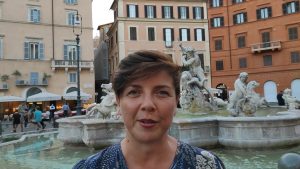 Presenter Bio: Mattea Di Fabio is the ISA Rome Resident Director since 2004. She was born in Rome and graduated from La Sapienza University with a Master’s degree in Humanistic and Historical Studies. She has traveled extensively throughout Europe and around the world (US, Brazil, Northern Africa and Kenya, India and Nepal). Mattea worked at summer camps with Italian high schools students during their time in UK and Ireland. As licensed tourist guide, she has experience in Italian primary and secondary schools, where she worked as a teaching consultant helping teachers to develop a more critical awareness with their pedagogy and lesson planning.
Presenter Bio: Mattea Di Fabio is the ISA Rome Resident Director since 2004. She was born in Rome and graduated from La Sapienza University with a Master’s degree in Humanistic and Historical Studies. She has traveled extensively throughout Europe and around the world (US, Brazil, Northern Africa and Kenya, India and Nepal). Mattea worked at summer camps with Italian high schools students during their time in UK and Ireland. As licensed tourist guide, she has experience in Italian primary and secondary schools, where she worked as a teaching consultant helping teachers to develop a more critical awareness with their pedagogy and lesson planning.
Join Webex meeting: https://ramapo.webex.com/ramapo/j.php?MTID=mba87525cf1306efb5195d9887b404902
(ID: 1784342622, password: qpWW3ptv)
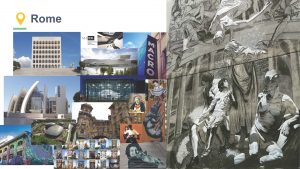
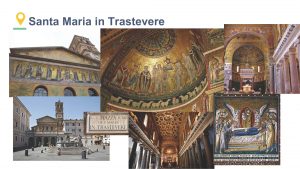
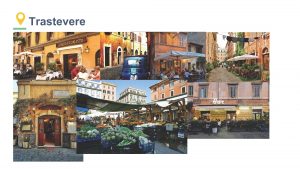
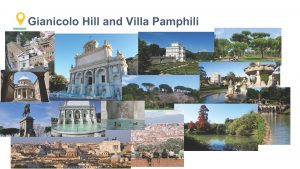
Co-sponsored by: The Roukema Center for International Education, the George T. Potter Library, Ramapo Provost Office, and International Studies Abroad.
March 2021
Mar. 01
01:00 pm - 02:00 pm (EDT)Session Description: Many people in the Amazon basin of South America continue long-term, indigenous legacies of ecological culture and interactions with the species and ecosystems where they live. Meanwhile, business interests, migration patterns, climate change, the current pandemic and a variety of external pressures and social dynamics threaten to permanently destabilize previously sustainable ways of life.
Professor Eric Wiener will present a slideshow based on his work in the Peruvian Amazon over the past 30 years, and he and Professor Ashwani Vasishth will share insights and lead a discussion about this critical time for the people and ecosystems of the most biodiverse region on earth.
Presenter’s Bios:
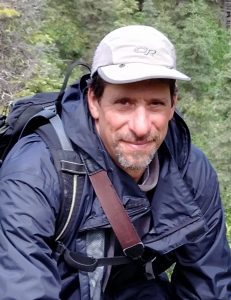 Eric Wiener is an Associate Professor of Environmental Science. Fluent in Spanish and Portuguese, for over 30 years Dr. Wiener has been conducting research and other scholarship related to forest restoration ecology and sustainable forest management by
Eric Wiener is an Associate Professor of Environmental Science. Fluent in Spanish and Portuguese, for over 30 years Dr. Wiener has been conducting research and other scholarship related to forest restoration ecology and sustainable forest management by
small landholders in Peruvian and Brazilian regions of the Amazon basin. Since joining the Ramapo College faculty, Dr. Wiener has been conducting extensive field research with strong student involvement about accelerated ecological change in forests of the
New Jersey and New York Highlands. In recent years, Dr. Wiener has also been conducting field research about raptor migration via the Ramapo Mountains, and the restoration and ecology of native wildflower meadows. His research interests also include sustainable landscaping and environmental stewardship.
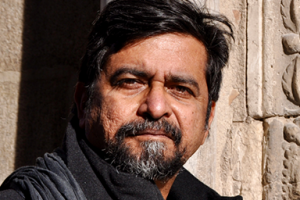
Ashwani Vasishth is Associate Professor in Sustainability, Convener of the undergraduate Sustainability Program (BA), and Director of the Center for Sustainability at Ramapo College of New Jersey. Dr. Vasishth is President of the New Jersey Higher Education Partnership for Sustainability (NJHEPS). He is part of the Environmental Studies Major and is a faculty member in both the South India and Peru Study Abroad programs. Dr. Vasishth’s pedagogy is focused on Education for Sustainability from within a transdisciplinary framework, always taking a scale-hierarchic, ecosystem approach to complexity, and within the context of a globalizing International SustainableDevelopment paradigm. He has research interests in an ecosystem approach, urban ecology, systems thinking and mental models.
Join Webex meeting: https://ramapo.webex.com/ramapo/j.php?MTID=m700f404f3faf11145e266401c5d95b31
(ID: 1785894842, password: xtWEFcsx)
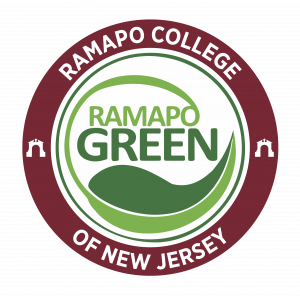
Co-sponsored by: The Roukema Center for International Education, the George T. Potter Library, Ramapo Green and the Ramapo Provost Office.
Mar. 04
10:00 am - 11:00 am (EDT)Session Description: Are you interested in studying relationships between people and music, in your local community and around the world? Then you might be interested in ethnomusicology, a long name for an accessible topic. Ethnomusicologists study how making and listening to music connects to emotion and entertainment; friendship, family, and community; dance, drama, and ritual; business, politics, and globalization; and, more often than not, culture and identity. This Global Talk introduces several of these topics as well as common research methods and ways ethnomusicology relates to other music professions. After the presentation by Professor Marc Gidal, a second ethnomusicologist who teaches at Ramapo, Adjunct Professor Andrew Kaye, will offer additional remarks prior to Q&A with attendees.
Presenters’ Bios:
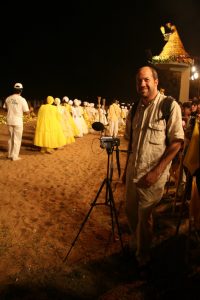 Marc Gidal, Associate Professor of Music (Musicology) at Ramapo, is anethnomusicologist who studies religious music, art music, and jazz from Brazil and the U.S. He also studied music and religion in India and Israel. As a musician, he primarily plays jazz bass. PhD, Harvard; MA, Tufts; BS, University of Oregon.
Marc Gidal, Associate Professor of Music (Musicology) at Ramapo, is anethnomusicologist who studies religious music, art music, and jazz from Brazil and the U.S. He also studied music and religion in India and Israel. As a musician, he primarily plays jazz bass. PhD, Harvard; MA, Tufts; BS, University of Oregon.
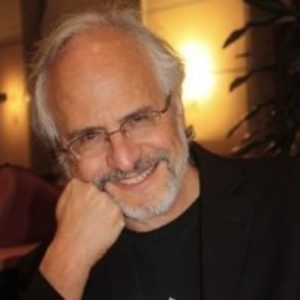
Andrew L. Kaye, PhD, is an ethnomusicologist who has published on topics in African music, the history of stringed instruments, and film music. He has taught courses on Asian music, Latin American music, music of the European classical tradition, film music, music and gender, jazz, rock, and hip-hop. Kaye has traveled to over 80 countries and speaks several languages. A tango aficionado, he has taught tango workshops in Norway and Qazaqstan.
Join Webex meeting: https://ramapo.webex.com/ramapo/j.php?MTID=m7133450e2728604ad0440ca6c0db9f1c
(ID: 1780833337, password: EBh4Ebbp)
Co-sponsored by: The Roukema Center for International Education, the George T. Potter Library, Ramapo’s School of Contemporary Arts and the Ramapo Provost Office.
Mar. 08
01:00 pm - 02:00 pm (EDT)We will be discussing short stories from Greek, Haitian and Japanese authors that feature ghosts, some friendly, others frightening and the spirit of a deceased aunt who would like her living niece to join her in becoming the latter. All registered participants will receive links to reading materials and virtual meeting information. Register here: https://forms.gle/qbZ3ievqK31L6FgNA
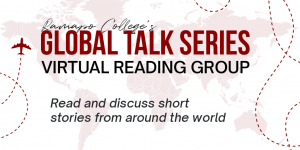
Join WebEx Meeting: https://ramapo.webex.com/ramapo/j.php?MTID%3Dm8d0fd3d2968a020d0b4d572c80bbdcd4&sa=D&source=calendar&ust=1614105037637000&usg=AOvVaw1CKEUeHtyn4yvY4YOpd1Ci
Co-sponsored by: The Roukema Center for International Education, the George T. Potter Library, and the Ramapo Provost Office.
Mar. 11
01:00 pm - 02:00 pm (EDT)Presentation Description: This presentation introduces population health perspectives, with emphasis on the biological and social determinants of health at the community level, such as transportation, food, economic status, age and lifestyle habits. Examples in a Chinese community and Traditional Chinese Medicine (TCM) practices will be discussed.
Presenter Bio: Yan Xu is a member of the Biology convening group. She was trained as a plant biologist but has adapted to the education missions at a liberal art college by creating various interdisciplinary and intercultural courses and programs. She serves as the conveners of Plant Studies Minor and Public Health Minor, and a founding member of the Food Studies Minor. Her elective courses, Food Studies (BIOL 346), Medicinal Plants (BIOL 347), Plant Physiology (BIOL 324), Epidemiology (BIOL 204), and Community Health and TCM (SCIN 220/NURS 220), have all focused on human-environment interactions and the well-being at the community level. She regards learning as a life-long journey, and visions herself as a facilitator for her students’ learning experience occurring both inside and outside the classroom.
Join Webex meeting: https://ramapo.webex.com/ramapo/j.php?MTID=m95e4b6b2c55f8498c27d6879e0dd21a7
(ID: 1787294578, password: HSPNd3Xw)
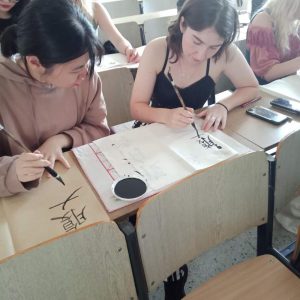
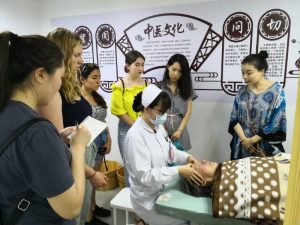
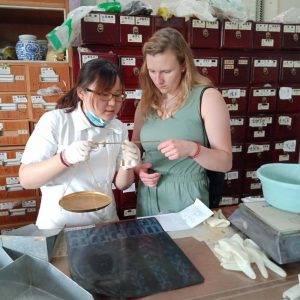
Co-sponsored by: The Roukema Center for International Education, the George T. Potter Library, and the Ramapo Provost Office.
Mar. 15
01:00 pm - 02:00 pm (EDT)Session Description: We will explore the history and culture of southeastern Europe and former Yugoslavia within the context of the Balkan war, which took place from 1991-1995. You will be provided with some historical context followed by an open conversation held by Nada Raic and Ivana Bajurin, API Croatia Resident Directors, who were teenagers at the time. They will share their personal experiences about their daily life (family, school, food, etc.), the conflicted emotions (hate, misery, fear, love) and the survival and coping strategies they learned. Do not miss the opportunity to learn about a conflict that took place in the heart of Europe not long ago from 2 women that experienced it first-hand, and who, despite the difficulties, have cultivated a fantastic sense of humor!
Presenters’ Bios:
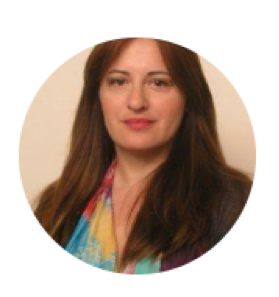
Nada Raic – Nada was born in Mostar, Bosnia and Herzegovina in 1976. She spent her childhood in a multiethnic environment where Croats, Bosnian and Serbs lived peacefully. She was attending medical high school when the war in Bosnia and Herzegovina started. She lived under siege for two months after which she seeked refuge in North Dalmatia. She graduated in 2000 with a double Masters degree in Philosophy and History of Croatian Culture. She was part of the team who established the 1 st private University in southeastern Europe in the early 2000s. Nada has spent her entire career in the field of International Education, and has worked for API since 2013. Her special interest is interfaith and intercultural dialogue. She loves to travel and meet new people.
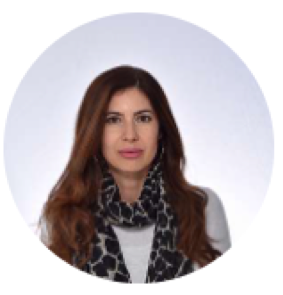
Ivana Bajurin – Ivana was born in 1977 in Dubrovnik, Croatia (ex-Yugoslavia). As a child of diplomats, she spent several years living in Havana (Cuba) and later in Trieste (Italy). Her experiences living and being educated abroad fostered her interest in different cultures and languages. She returned to Dubrovnik in 1991 and enrolled in high school when the 4-year war started. Her house was damaged during the bombardment and she was forced to seek refuge first in Slovenia and later in Austria. After getting a BA degree in the Faculty of Tourism, Ivana worked for the largest Croatian travel agency in Dubrovnik. She has worked with API for 7 years, loves her job and the opportunity to engage with younger generations.
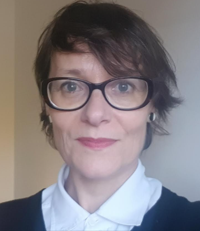 Pilar Llamas (Moderator) – Pilar Llamas is a native southern Spaniard (Almería). She has spent the last 20+ years linked to international education and particularly to study abroad where she has been directly responsible for running programs on-site in Granada (Spain) and for the development of programs and training of Resident Directors in multiple countries with API. Her study abroad experience, first in England and later in the U.S. while earning an MA degree, profoundly influenced her career and life. Her firm belief that the exposure to other cultures has a deep positive impact on the world has been the engine that has fueled her career and her life.
Pilar Llamas (Moderator) – Pilar Llamas is a native southern Spaniard (Almería). She has spent the last 20+ years linked to international education and particularly to study abroad where she has been directly responsible for running programs on-site in Granada (Spain) and for the development of programs and training of Resident Directors in multiple countries with API. Her study abroad experience, first in England and later in the U.S. while earning an MA degree, profoundly influenced her career and life. Her firm belief that the exposure to other cultures has a deep positive impact on the world has been the engine that has fueled her career and her life.
Register/Join Zoom session: https://us02web.zoom.us/meeting/register/tZYufu6gqzMvHNDZQwz1QGV5mta-Y7kzYItv
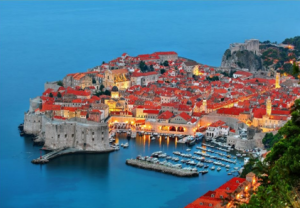

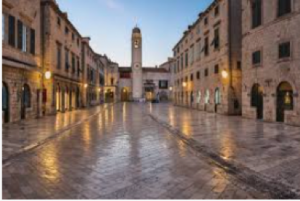

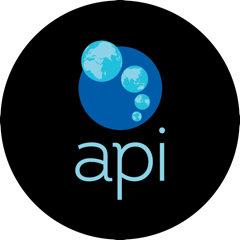 Co-sponsored by: The Roukema Center for International Education, the George T. Potter Library, Ramapo Provost Office, and Academic Programs International (API).
Co-sponsored by: The Roukema Center for International Education, the George T. Potter Library, Ramapo Provost Office, and Academic Programs International (API).
Mar. 18
01:00 pm - 02:00 pm (EDT)Session Description: Morocco has always been able to catch the attention of travelers, explorers, and learners for its diverse cultural profile, geographic allocation, foods, and languages. The story of Morocco has been told by historians, explorers, journalists, and Moroccan immigrants themselves.
Some Moroccan immigrants suddenly become language teachers, intercultural mentors, and advisors in global education, leaning on their expertise as educators, but the majority of these migrants become intercultural educators just by crossing the borders.
The processes of sharing language and ‘culture’, food and stories with students, and host communities has been a daily practice for Moroccan migrants in Europe and North America.
Meanwhile, things are changing in Morocco while migrants (like us) are busy working and adjusting to their new environments. How do we keep the story alive, and relevant, when realities keep shifting in our countries of origin while we try to stay true to the essence and stories we teach and share.
Presenter Bios:
Jamila Chahboun: Jamila Chahboun is a Senior Lecturer of Arabic at the Department of Middle Eastern Studies at Dartmouth College and co-advisor of the Arabic Language Community-Global village at Dartmouth. She holds a Master’s degree in Social Justice in Intercultural Relations from SIT Graduate Institute (School for International Training), Brattleboro, VT. She also holds a BA in English Linguistics from Ibn Tofail University in Kenitra, Morocco.
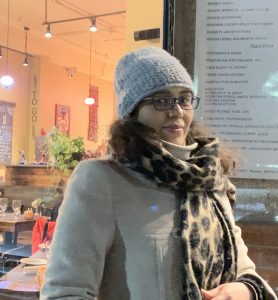 Jamila served as a language instructor and a Cross-Cultural educator and language instructor at the Center for Cross-Cultural Learning in Rabat, Morocco. She worked as a Program Coordinator for SIT Study Abroad, Elderhostel, and the Experiment in International Living (EIL).
Jamila served as a language instructor and a Cross-Cultural educator and language instructor at the Center for Cross-Cultural Learning in Rabat, Morocco. She worked as a Program Coordinator for SIT Study Abroad, Elderhostel, and the Experiment in International Living (EIL).
In 2003, Jamila served as a Fulbright Scholar where she taught Arabic at the University of Illinois at Chicago. She also worked as an Arabic instructor for undergraduate students at Marlboro College, Marlboro, VT, and at the SIT Graduate Institute in Brattleboro, VT where she helped in redesigning the Arabic language program.
Jamila has been working as a consultant and curriculum design specialist at SIT Study Abroad assisting to conceptualize and design SIT Study Abroad Arabic language programs in North Africa and the Middle East. She is a member of the Institute of Study Abroad (IFSA) Middle East Advisory Committee (MEAC) at Butler University in Indiana where she helps review Middle East Study Abroad programs and Arabic language curricula.
Jamila has been serving as an applications’ reader with the critical language scholarship (CLS), a Department of State cultural and educational exchange program. She is a member of the Middle East Studies Association (MESA) and has presented on topics related to languages and dialects in the Middle East and North Africa.
Jamila lives with her husband, Mokhtar, and their daughter in West Lebanon, NH.
Dr. Mokhtar Bouba: Dr. Mokhtar Bouba has over 20 years of experience with designing and facilitating study abroad and experiential learning programs in Morocco. He holds a Ph.D. in leadership studies and education from Franklin Pierce University in New Hampshire. His work focused on the dynamics of image and image negotiation in Sahara Desert tourism. He has written and lectured about online education, cross-culture, tourism, Amazigh (Berber) culture, current issues in North Africa, and arts. He is also an artist, educator, and indigenous methodologist. Dr. Bouba also specializes in online pedagogies and education technology.
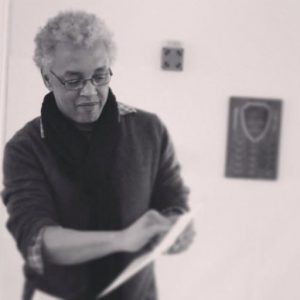 Before assuming his role of Assistant Professor and Co-Chair of the Intercultural Service, Leadership and Management program at the School for International Training Graduate Institute (SIT). Dr. Bouba was the instructional technologist for World Learning academic programs, supporting LowRes and, online and on blended programs. He had a leading role in the design and implementation of SIT’s Master of Arts in TESOL (online) low-residency program.
Before assuming his role of Assistant Professor and Co-Chair of the Intercultural Service, Leadership and Management program at the School for International Training Graduate Institute (SIT). Dr. Bouba was the instructional technologist for World Learning academic programs, supporting LowRes and, online and on blended programs. He had a leading role in the design and implementation of SIT’s Master of Arts in TESOL (online) low-residency program.
Recent study abroad programs he has led include a field course, Morocco Tourism, Space and Sustainability, offered to SIT Graduate Institute students in VT. He has served as an Academic Director with SIT Study Abroad in Jordan and as a coordinator and program development specialist at the Center for Cross-Cultural Learning (CCCL) in Rabat, Morocco. He designed and directed many exchange programs including programs with the Experiment in International Living and Rhodes Scholar.
He has advised SIT students and Fulbright scholars and taught Tamazight (Berber) and Arabic at Peace Corps, the Center for Cross-Cultural Learning in Morocco, and online. He has been an Arabic instructor at SIT Graduate Institute, where he helped re-design the Arabic language program for graduate students.
Dr. Bouba is working on a book project titled “Dynamics of Image and Image Negotiation in Moroccan Sahara Desert Tourism”, which is about the ethics and politics of representation of the Sahara and its people. He is currently a lecturer in the Middle Eastern Studies Department at Dartmouth College.
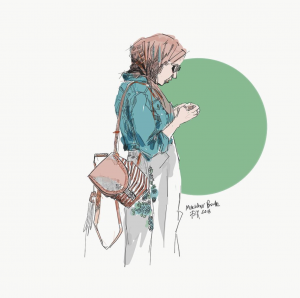
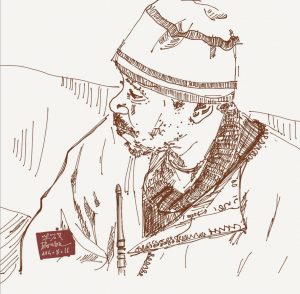
ID: 1786446938
Password: ZeiEqXvh
Password: ZeiEqXvh
Co-Sponsored by: The Roukema Center for International Education, the George T. Potter Library, the Provost’s Office, and the Global Indigenous Network.
Mar. 22
01:00 pm - 02:00 pm (EDT)Presentation Description: Donald Trump’s presidency gave voice to extreme anti-immigrant sentiments among millions in the United States and elsewhere in the West. However, the anxiety about immigrants and the steadfast resolve to keep out the unwanted intruders have been dominant for decades. Migrants have been portrayed as an army of faceless invaders, men and women and children coming to us on overpacked boats, or the multitudes sneaking through our borders in the dark of the nights. They are the invisible aliens in our midst. Migrant Narratives is an attempt to make visible the invisible, and unpacking the dominant public perception and paradigm by sharing the life stories of those we have grown to fear.
Presenter Bio: Behzad Yaghmaian is an Iranian-born author and a Professor of Political Economy at Ramapo College of New Jersey. Yaghmainan’s books include Embracing the Infidel: Stories of Muslim Migrants on the Journey West (Penguin Random House, 2006), and Accidental Capitalist: A People’s Story of Modern China (Pluto Books, 2012). Kirkus Reviews called Embracing the Infidel, “An El Norte or Grapes of Wrath for the Muslim world.” The San Francisco Chronicle called Yaghmaian “a masterful storyteller.” Publishers Weekly called him “a modern Alexis de Tocqueville.” Yaghmaian’s op-ed pieces have appeared in The Wall Street Journal, The New York Times, USA Today, Foreign Affairs, and Aljazeera. He has had many appearances on CNN, CNN International, Book TV, Democracy Now, NPR’s Morning Edition, WNYC’s The Brian Lehrer Show, various Public Radio stations, the Canadian Broadcasting Corporation, and radio programs in England and Italy.
Join Webex meeting:
https://ramapo.webex.com/ramapo/j.php?MTID=m5893470f6874905f18e833e6a21be7fe
(ID: 1787769959, password: VFhv83da)
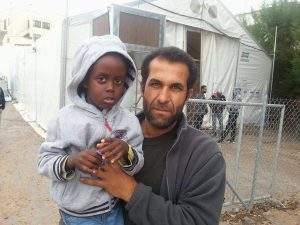
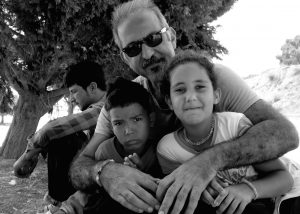
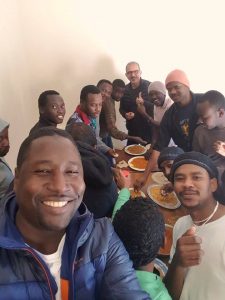

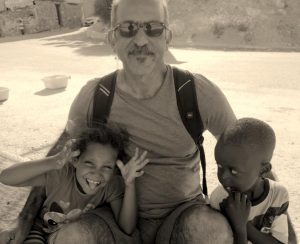
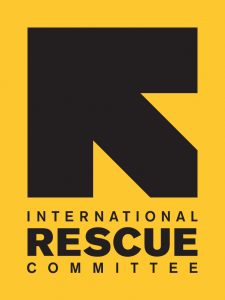
Co-sponsored by: The Roukema Center for International Education, the International Rescue Committee, the George T. Potter Library, and the Ramapo Provost Office.
View other Global Talks here: Ramapo’s Global Talks
Mar. 29
01:00 pm - 02:00 pm (EDT)We will be discussing short stories from Mexican, Gambian and Syrian American authors that feature animals, ranging from a mouse that inspires a family of storytellers to the last of the jaguars. All registered participants will receive links to reading materials and virtual meeting information. Register here: https://forms.gle/qbZ3ievqK31L6FgNA

Join WebEx Meeting: https://ramapo.webex.com/ramapo/j.php?MTID%3Dm010f13c4199bc2f11ebec1d9a76558dc&sa=D&source=calendar&ust=1614105057694000&usg=AOvVaw17Un0u47qt9LTzOH9eY7bh
Co-sponsored by: The Roukema Center for International Education, the George T. Potter Library, and the Ramapo Provost Office.
April 2021
Apr. 05
01:00 pm - 02:00 pm (EDT)Program Description: Professor Augis will discuss her 25 years of field research in the West African countries of Senegal and Niger. She’ll explain ways she constantly had to consider her role as an American woman in an African Islamic context, not just for the veracity of her studies, but in order to respect the community norms held by the people with whom she lived. This important research standard often made gathering data more challenging, but it also enabled her to conduct longitudinal research across many years where she followed the lives and experiences of Senegalese and Nigeriens who taught her a great deal. In her publications, she has also maintained high standards of reflexivity, as relaying findings must include the impact of the researcher — both for the sake of study respondents, and for the credibility of data.
Presenter Bio: Professor Augis holds a Ph.D. in Sociology from the University of Chicago and has been a professor of Sociology at Ramapo College since 2001. Her research expertise is two-fold: in addition to extensive work studying gender, religion, and migration in Africa, she is now conducting a study of anti-slavery abolitionsists from Ohio in the 1830’s. Interestingly, both the contemporary conservative Muslims in her West African research and the conservative Protestants who helped lead abolition in the 1830’s-1850’s engaged religious belief to transform society toward higher levels of equality for all. Professor Augis dedicates her career as a scholar to understanding and helping communicate the efforts of organized groups to improve human rights.
Join Webex meeting: https://ramapo.webex.com/ramapo/j.php?MTID=m6b6e2e43cb6bc572b814c849a5eb3937
(ID: 1784227540, password: HBUHEZ3T)
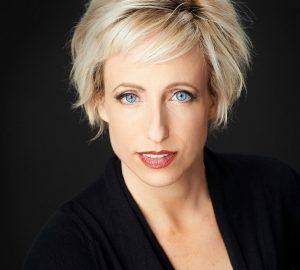
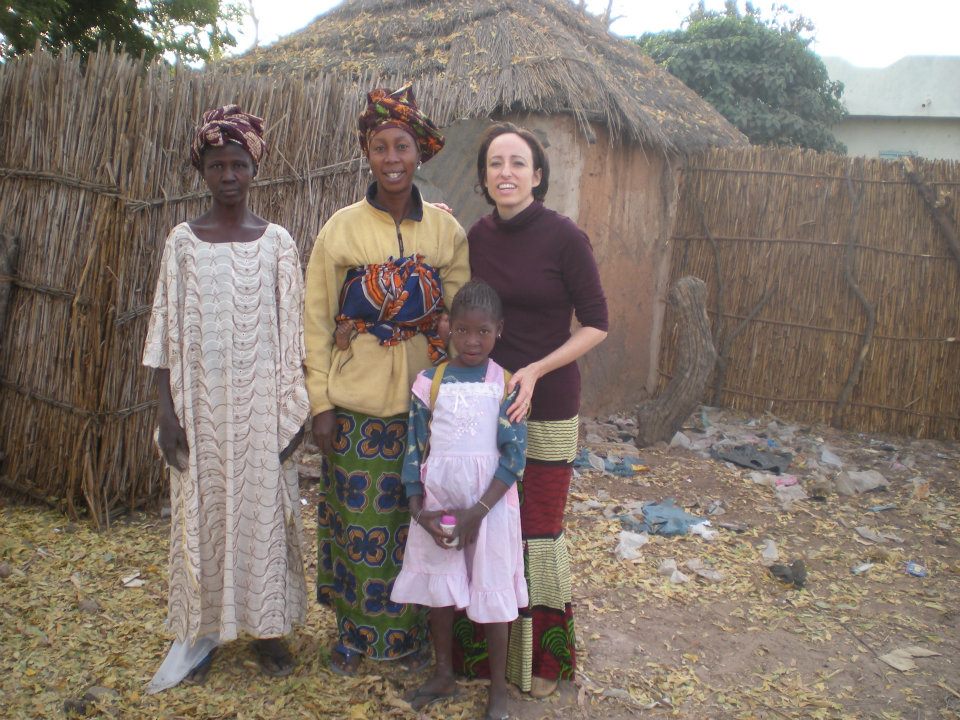
Co-sponsored by: The Roukema Center for International Education, the George T. Potter Library, and the Ramapo Provost Office.
Apr. 08
01:00 pm - 02:00 pm (EDT)Talk Description: What is the good life? And what makes work-life worth living? Exploring possible answers, we use positive psychology theory as a lens to zoom in on work and life in Denmark. The Scandinavian country that constantly ranks amongst the happiest countries in the world. In addition, we will explore why and how to promote “arbejdsglæde”, a Danish word for happiness at work. Awarded for nearly two decades to be one of the best small to medium sized companies to work for in Denmark and in Europe, we will use the Danish bank Middelfart Sparekasse as our case.
 Presenter Bio: Gitte Vonsild has a Master’s in Positive Psychology, minor in Psychology. M.Sc. in Economics from Copenhagen University. Gitte Vonsild is specialized in the field of Applied Positive Psychology and is a Certified Professional Co-Active Coach (CPCC) from the Coaches Training Institute, CTI. International leadership background as CFO 1997-2005 at Darguner Brauerei GmbH in Germany, a subsidiary of Harboe Group; an international beverage producer with facilities in Denmark, the Baltics, and Germany. Self-employed coach and workshop leader since 2005, and lecturer on Coaching & Counseling, Positive Psychology, Positive Psychology coaching, change theory, and stress management at Metropolitan University College, 2008-2012. With DIS since 2011 teaching the courses Positive Psychology, Positive Organizational Psychology, and The Happiness Lab.
Presenter Bio: Gitte Vonsild has a Master’s in Positive Psychology, minor in Psychology. M.Sc. in Economics from Copenhagen University. Gitte Vonsild is specialized in the field of Applied Positive Psychology and is a Certified Professional Co-Active Coach (CPCC) from the Coaches Training Institute, CTI. International leadership background as CFO 1997-2005 at Darguner Brauerei GmbH in Germany, a subsidiary of Harboe Group; an international beverage producer with facilities in Denmark, the Baltics, and Germany. Self-employed coach and workshop leader since 2005, and lecturer on Coaching & Counseling, Positive Psychology, Positive Psychology coaching, change theory, and stress management at Metropolitan University College, 2008-2012. With DIS since 2011 teaching the courses Positive Psychology, Positive Organizational Psychology, and The Happiness Lab.
WebEx Link: https://ramapo.webex.com/ramapo/j.php?MTID=mf8b913d68306c17ee659f66e1fabba49
[ID: 1788284498 Password: 2Ms33KWy]

Co-sponsored by: The Roukema Center for International Education, DIS: Study Abroad in Scandinavia, the George T. Potter Library, and the Ramapo Provost Office.
Apr. 19
01:00 pm - 02:00 pm (EDT)We will be discussing poetry and short stories from Pakistani, Singaporean and Brazilian authors that feature family, as both source of belonging and of alienation, as a theme. All registered participants will receive links to reading materials and virtual meeting information. Register here: https://forms.gle/qbZ3ievqK31L6FgNA

Join WebEx Meeting: https://ramapo.webex.com/ramapo/j.php?MTID%3Dmcc4b4750fb875f879ad004ebe573dbfb&sa=D&source=calendar&ust=1614105077507000&usg=AOvVaw1RHAh_haerz5JU6SzgYCdS
Co-sponsored by: The Roukema Center for International Education, the George T. Potter Library, and the Ramapo Provost Office.
Apr. 22
01:00 pm - 02:00 pm (EDT)Session Description: Join us for a discussion about linguistics, to discover how it collaborates with other disciplines through its various research fields. And to learn how languages can change your world view.
 Presenter Bio: Arwa Ayoub is a Fulbright scholar at Ramapo College where she teaches Arabic. Born and raised near Haifa, Israel, she received a Bachelors in Generative Linguistics from the Hebrew University of Jerusalem and a Masters In Translation and Research of Translation from Bar-Ilan University in Ramat Gan.
Presenter Bio: Arwa Ayoub is a Fulbright scholar at Ramapo College where she teaches Arabic. Born and raised near Haifa, Israel, she received a Bachelors in Generative Linguistics from the Hebrew University of Jerusalem and a Masters In Translation and Research of Translation from Bar-Ilan University in Ramat Gan.
JOIN WEBEX MEETING: https://ramapo.webex.com/ramapo/j.php?MTID=m082e9919f69bc09bda1a99c80985e3d6
Meeting number (access code): 185 827 9180
Meeting password: RGT-Linguistics
Co-Sponsored by: Roukema Center for International Education, Ramapo Library, Ramapo Provost’s Office and the Ramapo School of Humanities and Global Studies.

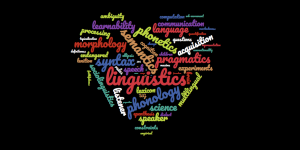
Apr. 26
01:00 pm - 02:00 pm (EDT)Program Description: While the spread of COVID-19 has posed a huge challenge to the whole world, its impact on ethnic, religious, and sexual minorities has been far more severe. In countries like India, existing poverty, traditional biases, and discriminatory policies by those in power has inflicted even more wounds on the already disadvantaged communities. It has resulted in undermining of various constitutional and human rights protections including the right to equality, right against discrimination, freedom of expression, right to health, and most importantly right to life and personal liberty. This lecture will highlight how the pandemic has caused further marginalization of minorities in India with specific reference to the Muslim community.
Presenter Bio:
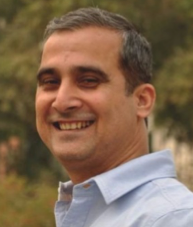 Dr Azim Khan is a professor of health and human rights with a zeal for social activism. Currently, he is working as Chair-MA Global Health program and an Academic Director for India: Public Health, Gender, and Community Action program of SIT Study Abroad-School for International Training since January 2008. He is a committed practitioner, academic and policy influencer contributing in the field of public health, education, human rights, and youth leadership development for the last 22 years. Dr Khan is a Fellow of the Royal Society for Public Health, UK, and a lifetime member of the Indian Public Health Association. He received the Ford Foundation International Fellowship for Human Rights for his academic excellence, leadership, and commitment to the community in 2003. In 2007, he was awarded a Scholar of Peace fellowship by the Foundation for Universal Responsibility of His Holiness the Dalai Lama. He has worked with Indian Universities and the US colleges, teaching law, public health, human rights, and policy advocacy for sustainable development. He was also the lead writer for a shadow country report on India for the UN Committee on the Elimination of All Forms of Racial Discrimination (UN CERD). Dr Khan has co-founded several education and development initiatives including Foundation for Public Health, Education, and Development-a community-based organization and a high school-Global School of Learning in his own community in India.
Dr Azim Khan is a professor of health and human rights with a zeal for social activism. Currently, he is working as Chair-MA Global Health program and an Academic Director for India: Public Health, Gender, and Community Action program of SIT Study Abroad-School for International Training since January 2008. He is a committed practitioner, academic and policy influencer contributing in the field of public health, education, human rights, and youth leadership development for the last 22 years. Dr Khan is a Fellow of the Royal Society for Public Health, UK, and a lifetime member of the Indian Public Health Association. He received the Ford Foundation International Fellowship for Human Rights for his academic excellence, leadership, and commitment to the community in 2003. In 2007, he was awarded a Scholar of Peace fellowship by the Foundation for Universal Responsibility of His Holiness the Dalai Lama. He has worked with Indian Universities and the US colleges, teaching law, public health, human rights, and policy advocacy for sustainable development. He was also the lead writer for a shadow country report on India for the UN Committee on the Elimination of All Forms of Racial Discrimination (UN CERD). Dr Khan has co-founded several education and development initiatives including Foundation for Public Health, Education, and Development-a community-based organization and a high school-Global School of Learning in his own community in India.
Join Webex meeting: https://ramapo.webex.com/ramapo/j.php?MTID=mc48a1704e15c215d6584c0526750fc1c
(ID: 1780163605, password: PsBKiP6a)
Co-sponsored by: The Roukema Center for International Education, SIT Study Abroad, the George T. Potter Library, and the Ramapo Provost Office.
May 2021
May. 03
01:00 pm - 02:00 pm (EDT)Presentation Description: In the last one year, India has witnessed two major protest movements against the government led by the Hindu-nationalist Bharatiya Janata Party. Both movements erupted following the laws passed by the government without enough consultation with the people these laws will directly impact. Interestingly, both movements were spearheaded by the marginalised social groups that have been at the receiving end of Modi government’s politics. The anti-Citizenship Law movement was led by Muslim women and anti-Farm laws protests by the farmers. In the past six years of the Modi rule, the government has aggressively implemented its Hindu majoritarian agenda by trying to change the basic structure of the constitution, suppressing religious minorities and criminalising free speech. Sadly, the political opposition has largely been ineffective and key institutions including the judiciary have remained a mute spectator. The media has gone a step further and has literally become an arm of the state’s propaganda machinery. In the face of this assault, will the people and their resistance be able to save the Indian democracy and its basic tenets? The talk will analyse:
- The role of the protests movements and the future of democratic resistance in India, and to what extent they have been able to challenge the authoritarian actions of the government.
- How the politics of majoritarianism is undermining the constitution and endangering the lives and livelihoods of the religious minorities and other politically disadvantaged groups.
- The state of the mainstream media, how it is helping the BJP in spreading its anti-constitution and anti-people agenda and the emergence of alternate digital platforms media.- And finally the future of journalism in the largest democracy of the world.
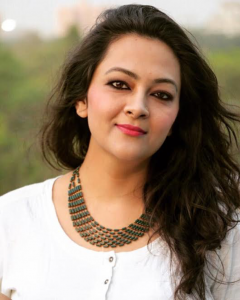 Presenter Bio: Arfa Khanum Sherwani works as a senior editor at The Wire (thewire.in), a financially and editorially independent multimedia news website published in English, Hindi and Urdu. The website mainly covers politics and current affairs, policy and governance matters, besides science journalism. Currently, she leads the multimedia team at The Wire. She has spent nearly two decades in the broadcast news sector covering politics, policy and governance issues. Her area of special interest is social justice. She hosts two popular programs on its site – ‘Arfa ka India’ (Arfa’s India) – a daily video Op-Ed on ‘news of the day’ – and ‘Hum Bhi Bharat’ (‘We Are Also India’), a weekly video program primarily devoted to the issues of people who are living on the margins of Indian democracy. Amidst the big corporate media’s monopoly over ideas, agendas and their control over ‘who would be allowed to speak’, our shows have, on many occasions, succeeded in countering the narrative, taking the debate forward or generating a new debate altogether.
Presenter Bio: Arfa Khanum Sherwani works as a senior editor at The Wire (thewire.in), a financially and editorially independent multimedia news website published in English, Hindi and Urdu. The website mainly covers politics and current affairs, policy and governance matters, besides science journalism. Currently, she leads the multimedia team at The Wire. She has spent nearly two decades in the broadcast news sector covering politics, policy and governance issues. Her area of special interest is social justice. She hosts two popular programs on its site – ‘Arfa ka India’ (Arfa’s India) – a daily video Op-Ed on ‘news of the day’ – and ‘Hum Bhi Bharat’ (‘We Are Also India’), a weekly video program primarily devoted to the issues of people who are living on the margins of Indian democracy. Amidst the big corporate media’s monopoly over ideas, agendas and their control over ‘who would be allowed to speak’, our shows have, on many occasions, succeeded in countering the narrative, taking the debate forward or generating a new debate altogether.
She is a founding member of RajyaSabha TV- the official broadcaster of the Upper House of India’s Parliament and worked there till 2017. Prior to that, she worked with NDTV for several years and was also associated with Bollywood actor Aamir Khan for his TV show, ‘SatyamevJayate’.
She has covered the Afghan elections of 2014 and the Iranian presidential elections of 2009. In 2016, she travelled to Iraq and made a documentary, ‘Jihad against ISIS’, on the ongoing conflict and the role of private militias in the country.
Awards and fellowships
- Red Ink Award for Excellence in Journalism for the Best Political Report of the year (TV category), 2019 for the interview with the godman and ‘Art of Living’ founder Sri Sri Ravishankar. The interview exposed his hypocrisy as a self-appointed mediator in the Ayodhya dispute and he subsequently filed a Rs 100 million defamation case against her and The Wire.
- Chameli Devi Jain Award for Outstanding Woman Journalist for the year -2019 for reports on Kashmir and coverage of India’s parliamentary elections.
- Robert Bosch Media Ambassadors Fellowship (2017), ‘The Rise of Right Wing Politics in Germany’
- India Representative, ‘Senior Journalists Seminar Fellowship’ by the East-West Centre, United States, 2018.
Education and leadership
Ph.D. and Master’s in political science from Jamia Millia Islamia University, New Delhi. Her doctoral thesis was a socio-political analysis of Dalits (the lowest caste group) and Muslims in India. She was invited to address the Harvard India Conference at Harvard University in February 2020. She also spoke at the Global Media Forum in Bonn, Germany (2017) on identity and diversity. She is a co-founder of South Asian Women in Media. Established in 2008, the organisation works with international rights organizations for freedom of press, increased participation of women in the media, a gender-sensitive work environment and a gender-equal outlook in the media..In its history of over 100 years, she was the second ever elected woman vice president of Aligarh Muslim University’s alumni association, a body dominated by men so far.She is an ‘Advisor in Residence’ for the Led ByFoundation, which works as a leadership incubator for Muslim women. It is a unique leadership program for young Indian Muslim women that focuses on experiential learning, collaborative networking, and financial support.
Webex link:
Co-sponsored by: The Roukema Center for International Education, the George T. Potter Library, and the Ramapo Provost Office.
Fall 2020 Calendar of Global Talks
FALL 2020
Fall semester will feature library-led reading discussion groups:
October 2020
Oct. 19
01:00 pm - 02:00 pm (EDT)
Mon., Oct. 19, 1-2pm – Africanfuturism (featuring Nigerian and Nigerian American authors)
Details & Register: https://www.ramapo.edu/international/globaltalks/
Ramapo’s Global Talks
Join Potter Library and the Roukema Center for International Education for a virtual literary discussion group to discuss short stories and optional articles and videos from international creators. Each week will have a different regional focus, as in past years of the Roukema Center’s Internationalization program. Open to students, staff, faculty, and administration!
All registered participants will receive links to reading materials and virtual meeting information. Please register using this form: https://forms.gle/aMRGwQSbQqhSQkCp8
November 2020
Nov. 02
01:00 pm - 02:00 pm (EDT)
Mon., Nov. 2nd, 1-2pm – Latin American and the Caribbean (featuring authors from Trinidad & Tobago, Colombia and the Virgin Islands)
Details & Register: https://www.ramapo.edu/international/globaltalks/
Ramapo’s Global Talks
Join Potter Library and the Roukema Center for International Education for a virtual literary discussion group to discuss short stories and optional articles and videos from international creators. Each week will have a different regional focus, as in past years of the Roukema Center’s Internationalization program. Open to students, staff, faculty, and administration!
All registered participants will receive links to reading materials and virtual meeting information. Please register using this form: https://forms.gle/aMRGwQSbQqhSQkCp8
Nov. 16
01:00 pm - 02:00 pm (EDT)

Mon., Nov. 16, 1-2pm – Asia (featuring authors from the Philippines and Malaysia)
Details & Regsiter: https://www.ramapo.edu/international/globaltalks/
Join Potter Library and the Roukema Center for International Education for a virtual literary discussion group to discuss short stories and optional articles and videos from international creators. Each week will have a different regional focus, as in past years of the Roukema Center’s Internationalization program. Open to students, staff, faculty, and administration!
All registered participants will receive links to reading materials and virtual meeting information. Please register using this form: https://forms.gle/aMRGwQSbQqhSQkCp8
The Series is Co-Sponsored by the Roukema Center for International Education, the Potter Library, and the Provost’s Office. Sponsors for individual Global Talks are highlighted in their specific event details.
Copyright ©2025 Ramapo College Of New Jersey. Statements And Policies. Contact Webmaster.



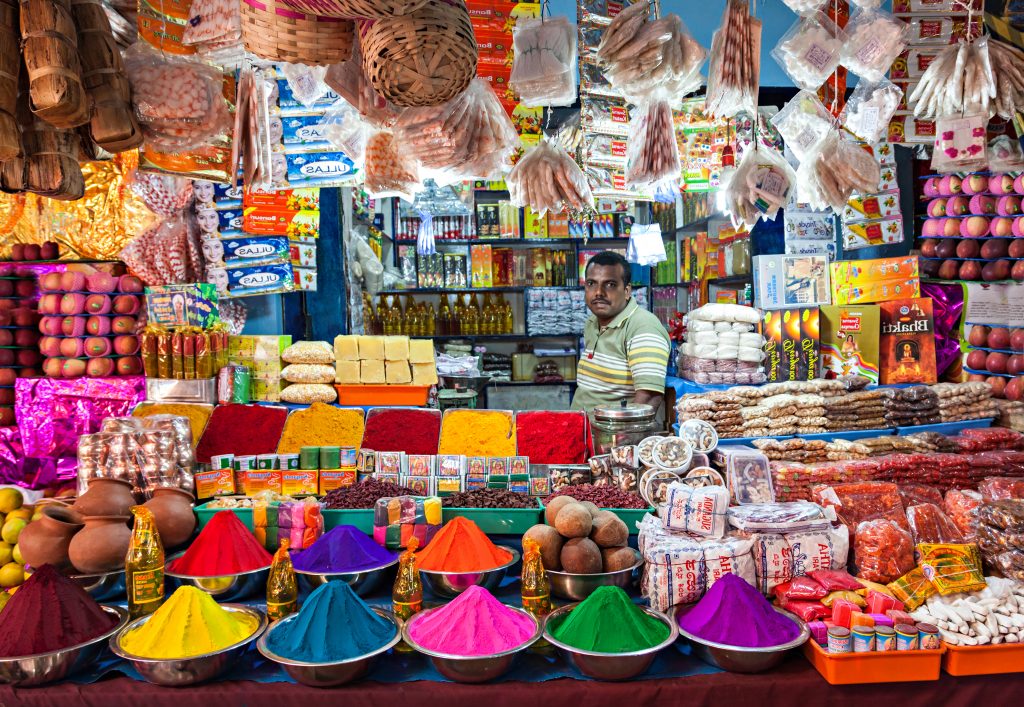
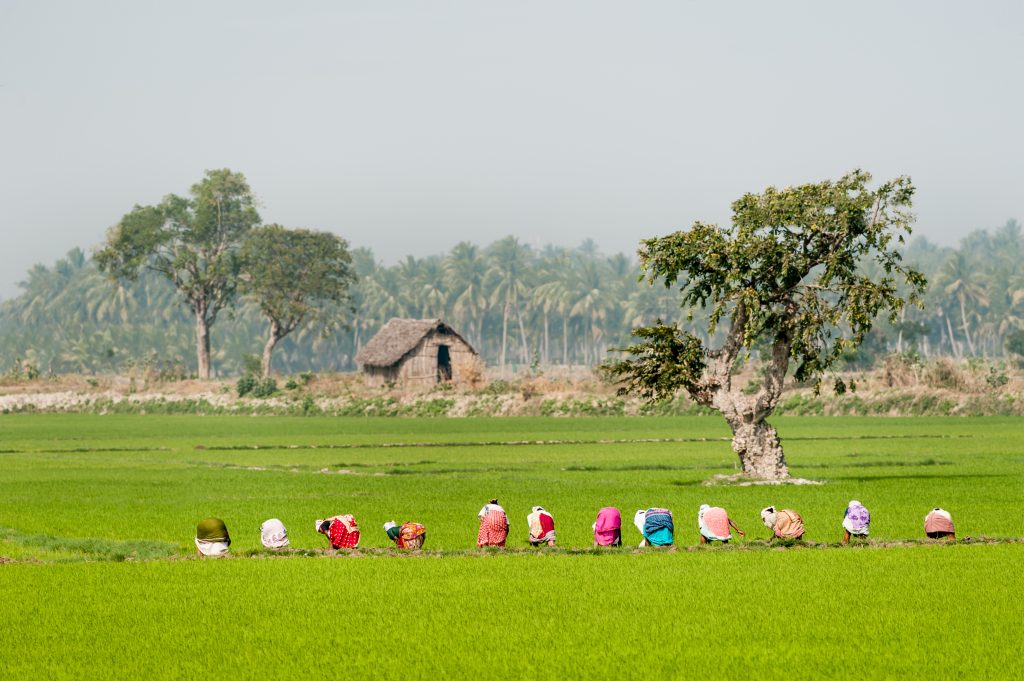
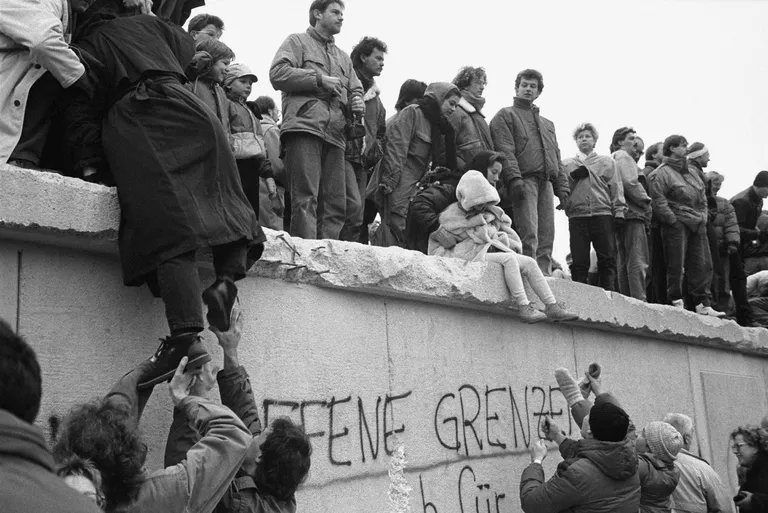

Follow Ramapo